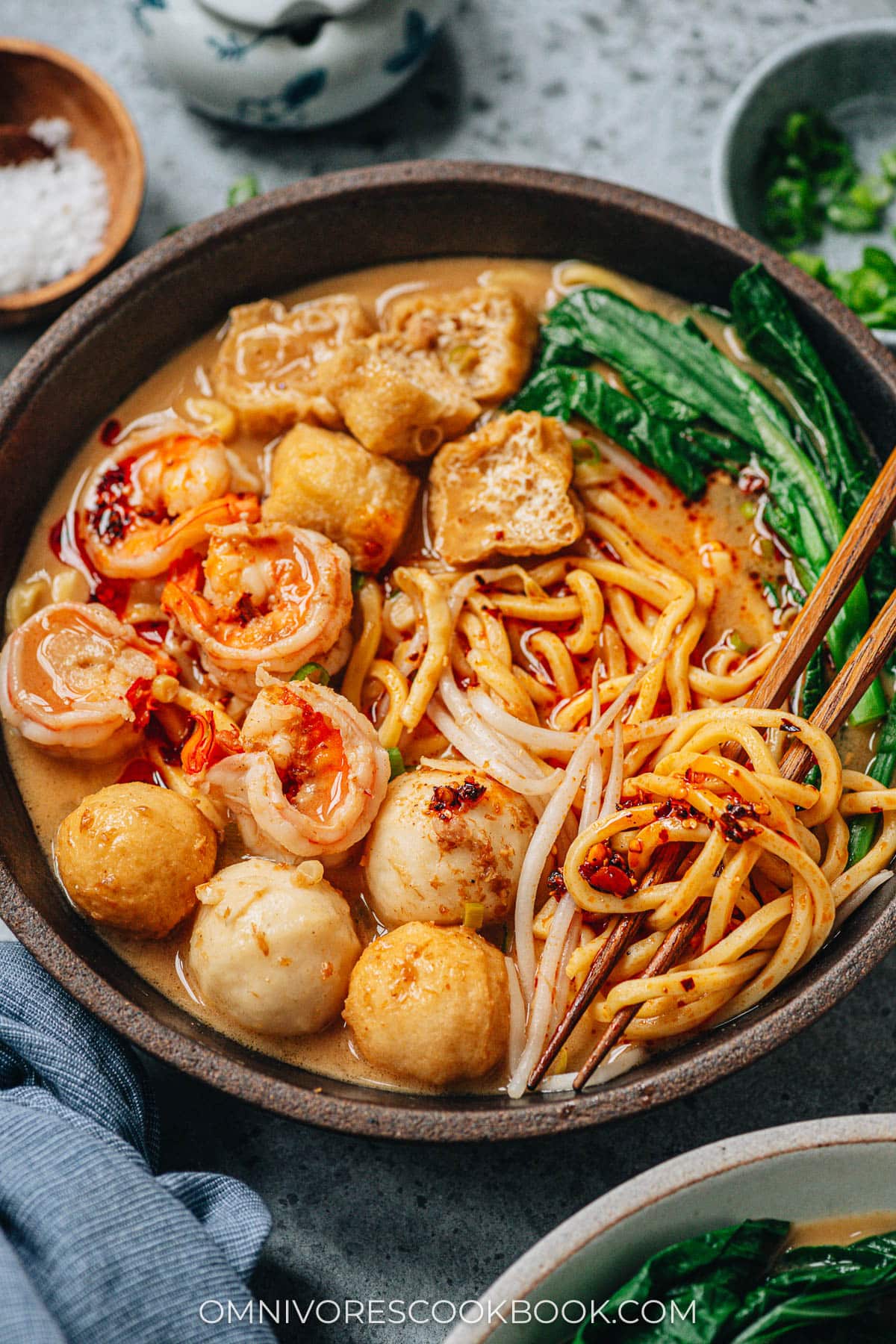
What is satay noodle soup
Satay Noodle soup (沙茶面, Shacha Mian) is a popular dish originating in the coastal city of Xiamen in China’s Fujian province. It is known for its savory, slightly spicy, and umami-rich broth, made from the unique shacha sauce, which is the core flavor of the dish.
Satay Noodles are often enjoyed as a hearty breakfast or lunch, and they are a beloved comfort food in Fujian cuisine. The use of seafood reflects Xiamen’s coastal heritage, and the dish is popular in local food markets and street stalls. Its flexible nature makes it an ideal meal for people who like to customize their food with different fresh ingredients from the market.
This popular dish can also be found in Taiwan and Southeast Asia, usually with different variations, influenced by the Fujianese migration throughout the region.
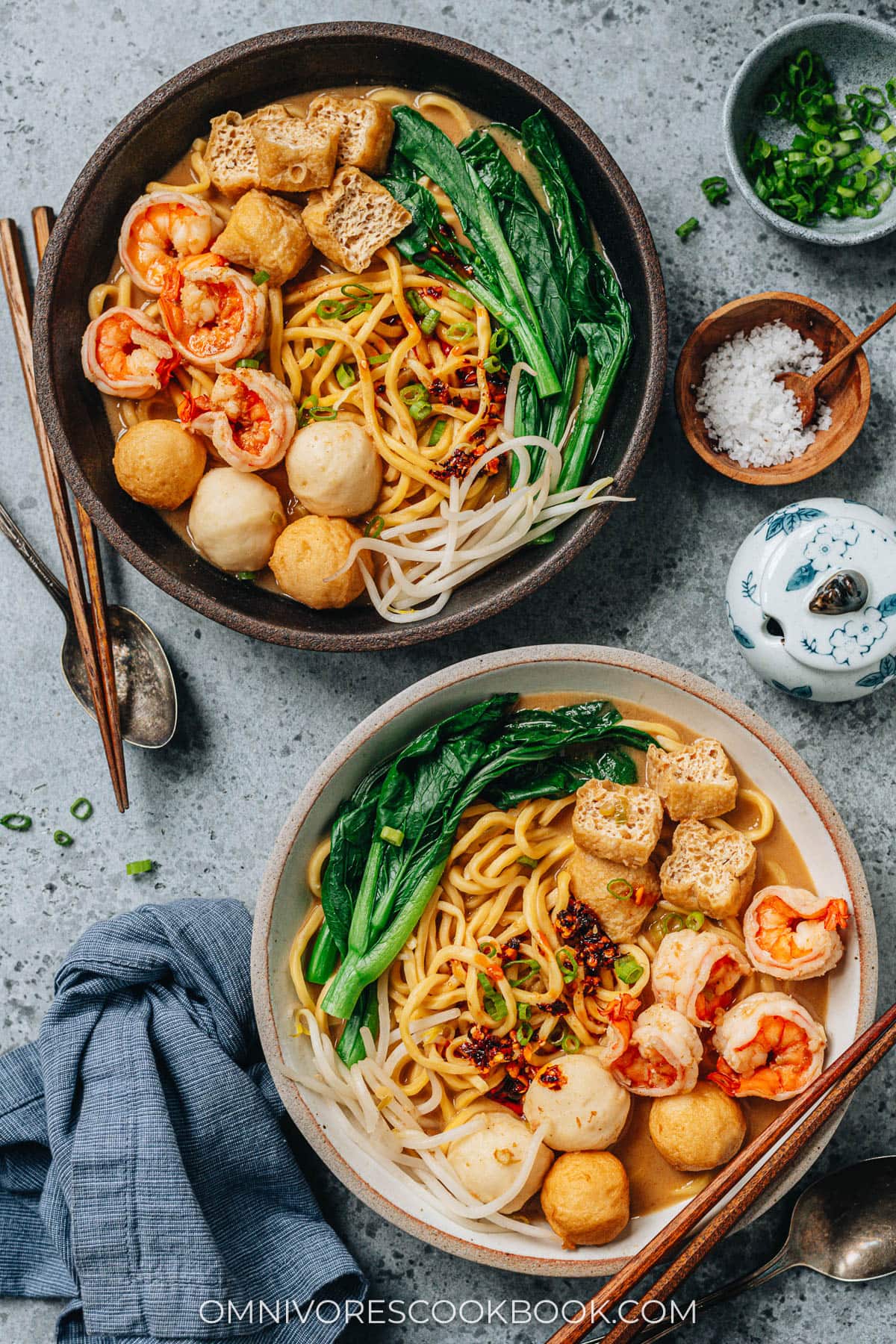
Satay noodle soup ingredients
Shacha sauce
Shacha sauce (沙茶酱), sometimes referred to as “Chinese BBQ sauce,” is made from a blend of ingredients including dried shrimp, garlic, shallots, chile peppers, and peanuts, which creates its distinctive savory-sweet flavor. It has an intense flavor and a thick texture. You can use it as a main base sauce to make easy stir fry dishes such as Shacha chicken.
You can find shacha sauce in most Asian markets or on Amazon.
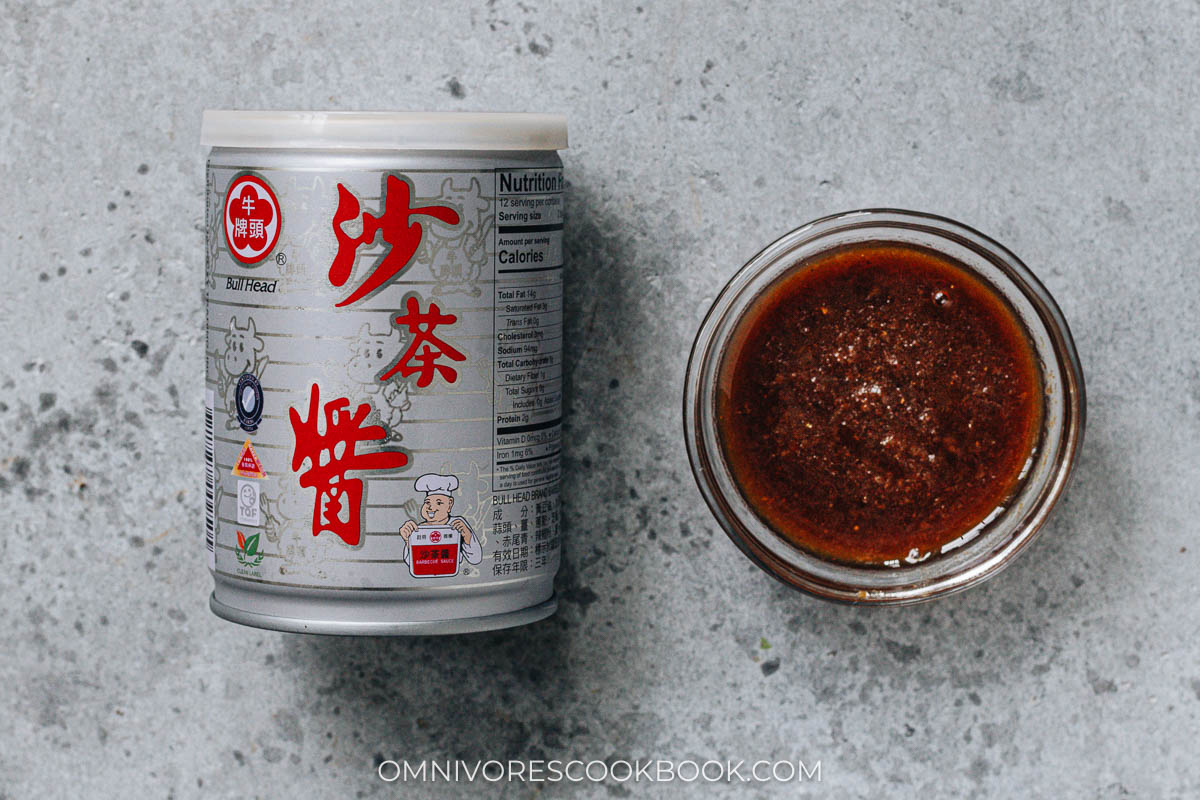
What type of noodle to use
Satay noodle soup uses 油面 (You Mian). It is a type of alkaline noodles (碱水面, Jian Shui Mian), that use wheat flour, an alkaline solution, and water as main ingredients. These noodles have a yellow tone and a meaty chewy texture, which works perfectly with the rich, nutty seafood broth.
If you live close to a Chinese market or large Asian market such as H Mart, you might be able to find fresh You Mian noodles in the refrigerated or freezer section.
If You Mian is not available, you can use Japanese ramen instead. Ramen noodles are thinner, but they contain the same ingredients and have a similar texture. Another great option is dried alkaline noodles. I love the dried noodles from The Mala Market. They have a perfect chewy texture once cooked.
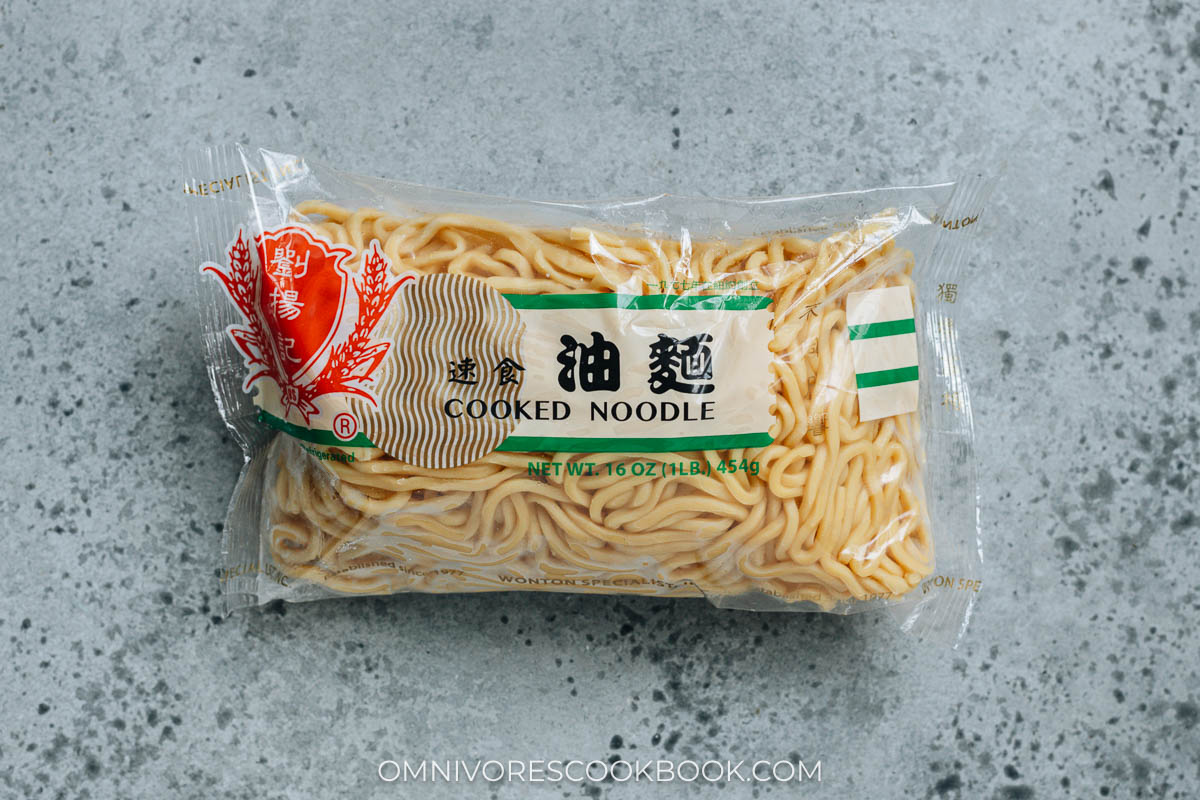
Topping options
There are many different ways to add toppings to your satay noodles. In my recipe I use fish balls, shrimp, and tofu puffs along with some bean sprouts and choy sum. These are the most popular toppings. They are also both super easy to cook and do not require special preparation.
Other popular topping options include:
- Seafood: Squid, fish
- Shellfish: Clams and oysters
- Meat: meatballs (pork and beef), pork liver, chicken gizzards etc.
You can pick your own favorite toppings. But do note, for ingredients such as sliced fish or pork liver, you might want to marinate them with a very small amount of Shaoxing wine, a pinch of salt, and some cornstarch for a better result.
Mise en place
When you’re ready to cook, you should have all the ingredients ready:
- Sliced aromatics (garlic and green onion)
- Bean sprouts
- Noodles
- Sauce ingredients (shacha sauce, peanut butter, fish sauce)
- Shrimp
- Sliced tofu puffs
- Fish balls
- Chicken broth
- Chinese greens
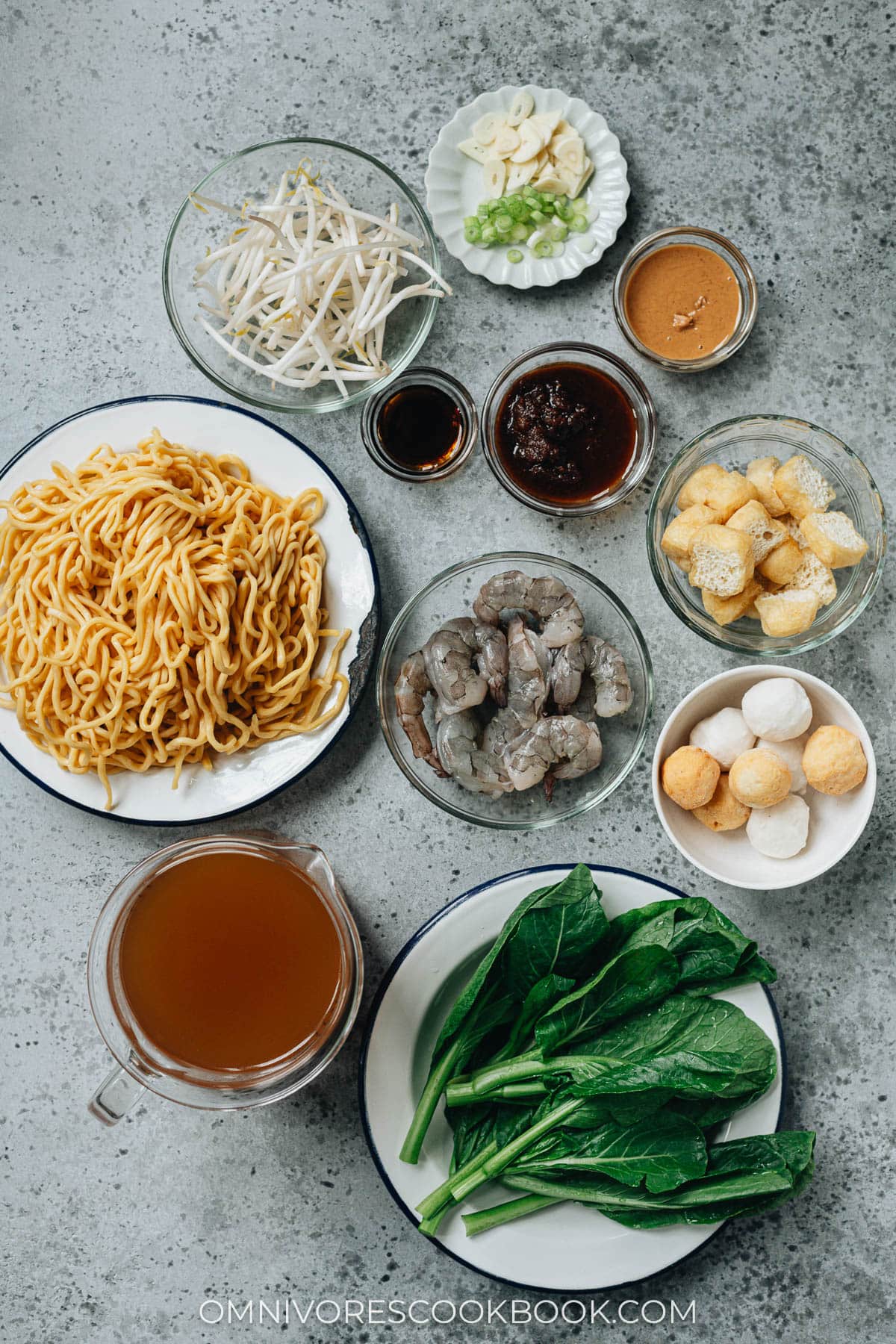
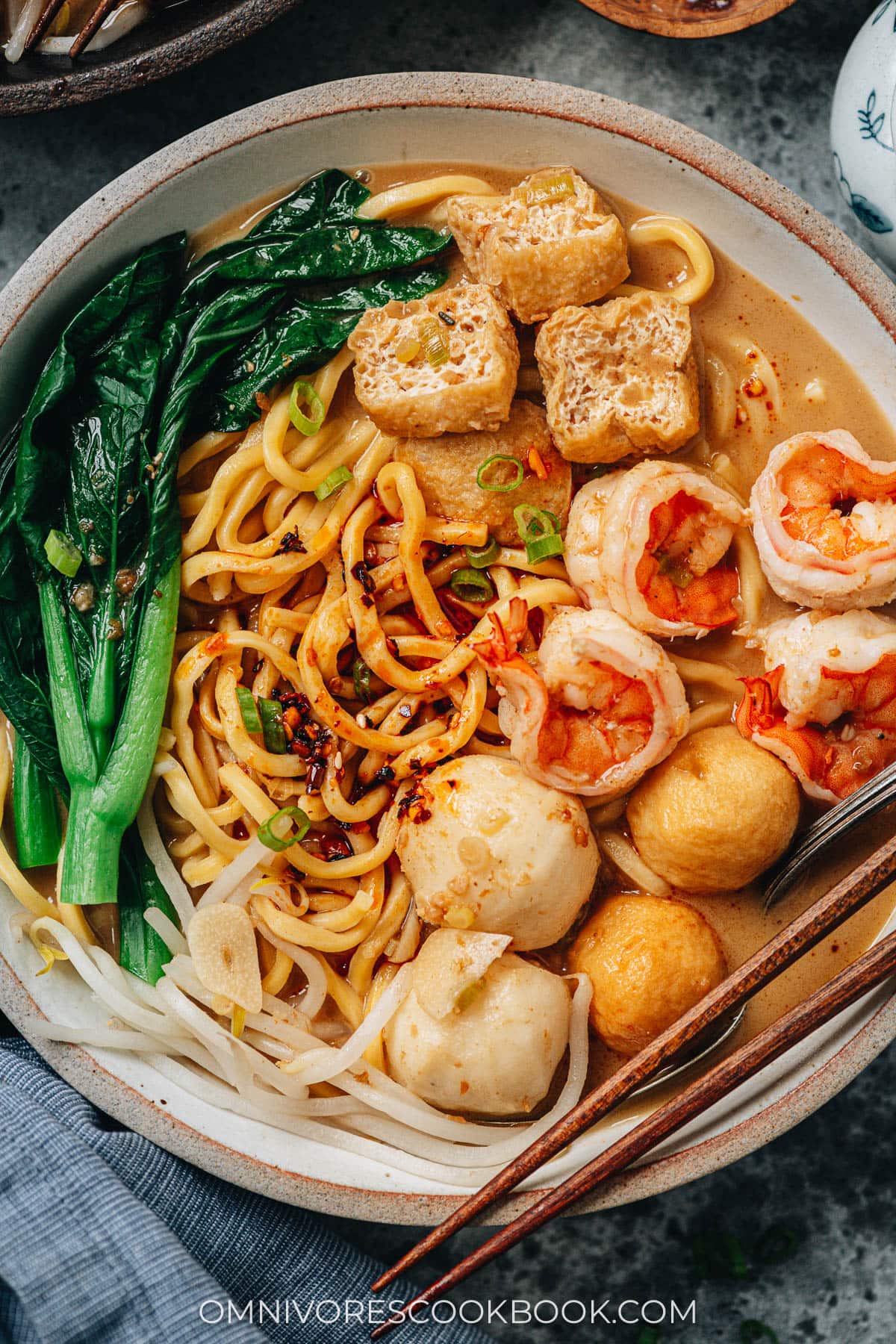
How to make satay noodle soup
Making satay noodle soup requires a few simple steps:
- Blanch the greens
- Quickly cook the bean sprouts
- Cook the noodles according to the instructions
- Saute the aromatics
- Cook the sauce ingredients
- Add the broth and cook the fish balls and tofu puffs
- Briefly cook the shrimp
- Assemble your noodle soup bowls
NOTE: I used fresh noodles that do not require cooking before serving. But I do prefer to dip them in hot water briefly so they are easier to separate.
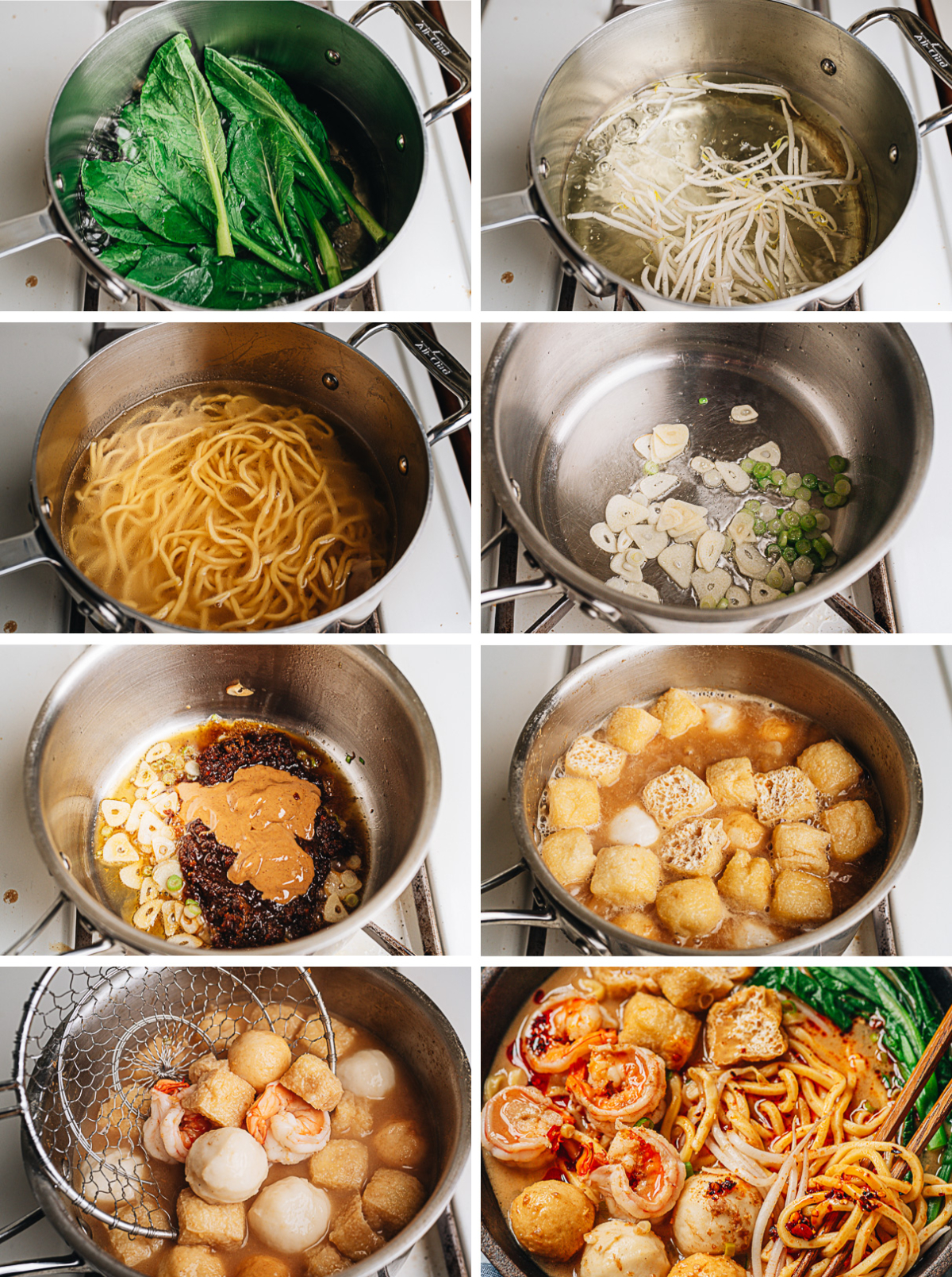
How to serve satay noodle soup
In China, satay noodle soup is a popular street food that people enjoy for breakfast or lunch. When cooking at home, I like to add extra toppings and serve it as a one bowl dinner when I want something hearty.
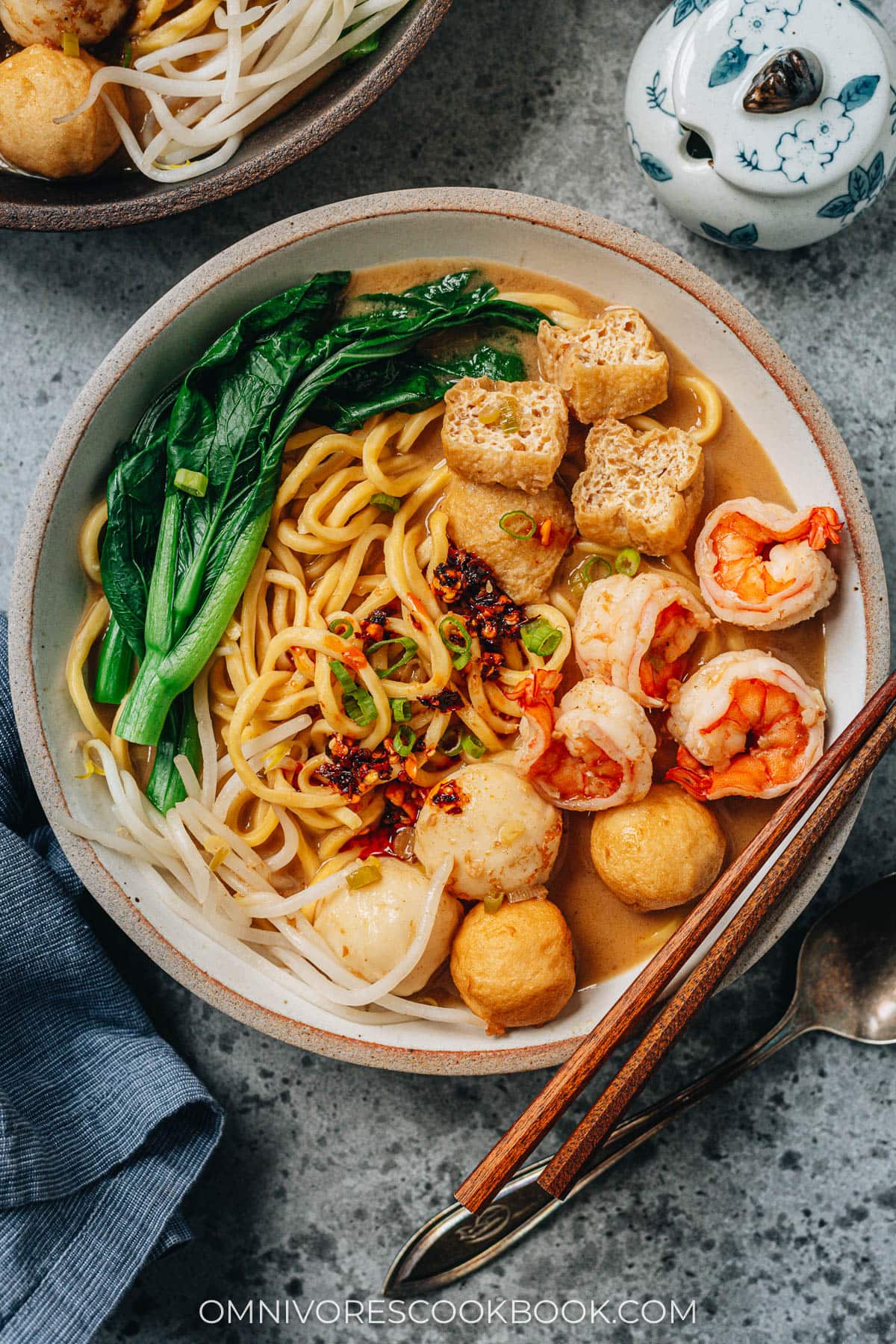
Other delicious noodle recipes
- Laghman (Noodles with Lamb Sauce, 新疆拌面)
- Biang Biang Noodles (Yu Po Mian)
- Shanghai Scallion Oil Noodle (葱油拌面)
- Chongqing Noodles (重庆小面)
- Lanzhou Beef Noodle Soup (兰州拉面)
Chinese Cooking Made Easy
Are you new to this website? This free email series is a great place to start. I’ll walk you through a few of my most popular recipes and show you how and why they work. You’ll quickly start to cook better Chinese food in your own kitchen.
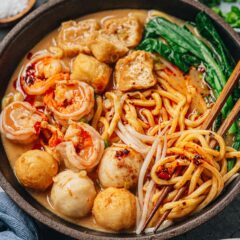
Satay Noodle Soup (沙茶面)
Ingredients
- 1 lb (450 g) fresh Alkaline noodle (or 12 oz / 340 g dried alkaline noodles) (*Footnote 1)
- 6 choy sum (baby bok choy)
- 1 cup bean sprouts
- 2 cloves garlic , crushed
- 1 green onion , sliced
- 1 tablespoon peanut oil (or vegetable oil)
- 4 tablespoons Shacha sauce
- 2 tablespoons unsalted smooth peanut butter
- 4 cups chicken broth
- 8 tofu puffs , halved
- 8 fish balls
- 8 to 10 shrimp , peeled and deveined
- 2 teaspoons fish sauce
- Salt (to taste)
- Chili oil to taste, if prefer a spicy taste (Optional)
Instructions
- Bring a large pot of water to a boil. Boil the noodles according to the package directions. Drain, then rinse quickly with running tap water to stop cooking. Drain again and portion the noodles into two individual serving bowls. Reserve the boiling water.
- Use the same water to blanch the choy sum and bean sprouts separately, for 1 minute or so, until just cooked through. Once done, drain and transfer to the bowl with the noodles.
- Add the crushed garlic and white part of the green onion onto the noodles.
- Add the oil into a medium-sized pot and heat over medium heat until hot. Add the garlic and green onion whites. Stir fry a few times to release the fragrance.
- Turn to medium-low heat. Add the shacha sauce and the peanut butter. Stir and cook to release the fragrance, 1 minute or so.
- Pour in the chicken broth, stir to mix well, and heat over medium-high heat until boiling. Add the tofu puffs and fish balls. Cook for 5 minutes, until the fish balls are cooked through.
- Add the shrimp. Cook for another minute or so, until the shrimp just cooked through. Taste the broth. Adjust the seasoning by adding a pinch of salt, if needed.
- Transfer the hot broth into the noodle bowls. Portion the tofu puffs, fish balls and shrimp into each bowl. Garnish with the green part of the green onions. Serve hot as a main dish.
Notes
- Alkaline noodles are wheat noodles that have a yellow tone due to the added alkaline solution. Check out my blog post above for more detailed information on how to source the noodles. For a replacement, try Japanese ramen noodles, udon noodles, or other types of wheat noodles that have a chewy texture.
Nutrition

Did you make this recipe?
I’d love to hear how it turned out for you! Please take a moment to leave a 5-star rating ⭐️ and share your thoughts in the comments further down the page. It really helps others discover the recipe too.
